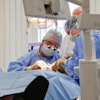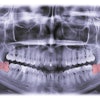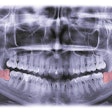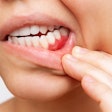Dentists no longer need to prescribe antibiotics to most patients at risk of heart disease, according to a new recommendation by the American Heart Association (AHA).
The new guidelines, published in the October 16 issue of Circulation, revise the broad recommendations for preventative antibiotics the AHA issued in 1997. The earlier guidelines were based on the observation that dental procedures flood the patient's blood with oral bacteria. Researchers worried this bacteria could cause infective endocarditis, a potentially serious infection of the heart's lining.
In revisiting the guidelines, an AHA committee noted that daily activities as routine as brushing your teeth are just as likely as a tooth extraction to send bacteria from the mouth into the bloodstream. And there's no evidence of a dental procedure actually causing infective endocaditis.
But just to be on the safe side, the AHA is keeping its prophylactic antibiotics recommendation in force for patients at the greatest risk of infective endocarditis. That includes those with:
- Prosthetic cardiac valve or prosthetic material used for cardiac valve repair
- Previous infective endocarditis
- Congenital heart disease (CHD)
- Unrepaired cyanotic CHD, including palliative shunts and conduits
- Completely repaired congenital heart defect with prosthetic material or device, whether placed by surgery or by catheter intervention, during the first six months after the procedure†
- Repaired CHD with residual defects at the site or adjacent to the site of a prosthetic patch or prosthetic device (which inhibit endothelialization)
- Cardiac transplantation recipients who develop cardiac valvulopathy
The AHA offers a wallet card for these patients describes the recommended antibiotic protocols for various dental procedures.



















